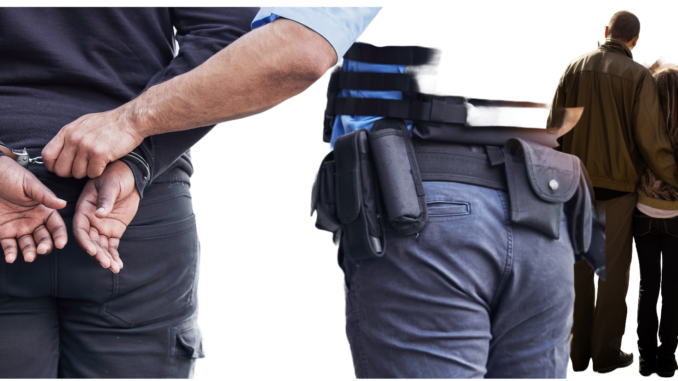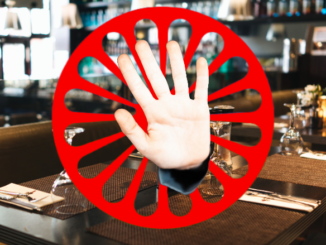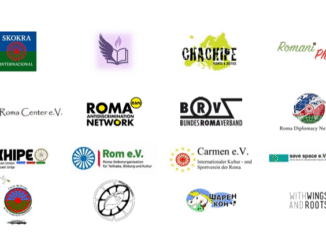
The European Court of Human Rights (ECtHR) has found in favour of three Romani men, who were brutally beaten and tortured during their arrest, transfer and detention by Greek police back in October 2016, and awarded them a total of €52,240 in damages. In the Case of Panayotopoulos and Others v. Greece, the applicants, who were represented by the Greek Helsinki Monitor, also complained that the relevant authorities failed to carry out an adequate investigation into the incident and that the police attacks on them were motivated by racial prejudice. The European Roma Rights Centre (ERRC) intervened as a third party in the proceedings to argue that the Romani men’s treatment by the police was characteristic of widespread institutional antigypsyism present in Greek law enforcement.
”The judgment is of great importance because it contains very detailed documentation on why both the successive disciplinary investigations, and the handling of the criminal case by prosecutors and judges were completely unacceptable” said Panayote Dimitras from the Greek Helsinki Monitor. “After all, this was ruled on, before the European Court, by the administrative courts that compensated one of the victims last year. It is also very important that the European Court ruled that the impunity was racially motivated. We believe that this judgment, like the two previous ECtHR judgments on pushbacks, are a guide for how the investigation of complaints of police violence must be radically reformed in order to finally make it compatible with the European Convention on Human Rights.”
Welcoming the ruling, ERRC President Đorđe Jovanović stated, “After nearly a decade, justice has been served. This case, characterised by extreme brutality, and the failure to carry out a proper investigation, is part of a wider problem of racist policing in Greece. In the last three years, three Romani teenagers were shot dead by Greek police. For Roma and other racialised minorities, extreme police violence is a regular fact of life, and police impunity remains largely intact. Structural reforms are needed to rid policing of structural racism. Such flagrant human rights abuses are unacceptable in an EU Member State and must end.”
Facts of the case
On 8 October 2016, police gave pursuit to a car in which the three men were passengers, and the chase ended in a collision. The men fled the scene, jumped a fence and took shelter on a balcony where they were subsequently arrested and handcuffed. According to their testimony, the police set upon them kicking and punching them in the head and all over their bodies as they lay on the ground. In his testimony, the first applicant said he could not remember how long the assault had lasted: “he had been only half-conscious after the beating and had vomited blood. Then someone had grabbed him by the hair and had dragged him and the others down the stairs.”
The men denied resisting arrest, and said that during the assault, the police officers had shouted threats and insults including racial slurs. The kicking and beatings continued during transfers between police stations, and one officer used a pen to inflict injury on the genitals of one of the victims. The men remained in police cells after the beating until they were taken before an investigating judge the next day.
The applicants stated that the police used this violence in an unsuccessful attempt to force the men to confess to criminal offences and to give up the name of the driver who had escaped. On 10 October 2016, the first applicant was transferred to an intensive care unit for 10 days with a reported heart attack and wounds to his genitals.
Court findings
The Court ruled that there had been a violation of Article 3 of the Convention (prohibition of torture and degrading treatment) in its procedural aspect (failure to investigate) in respect of all three applicants, and in its substantive aspect (violation of rights) in respect of two of them; and a procedural violation of Article 14 (prohibition of discrimination) taken together with Article 3 in respect of all applicants. Two of the applicants were each awarded €20,000; and the other was awarded €12,000.
The Court found that all the reports drawn up by the domestic authorities in the subsequent administrative and criminal investigations “failed to provide adequate explanations for the applicants’ injuries and particularly the injury sustained by the first applicant, which the hospital ascribed to the first applicant having been struck by a ‘pointed instrument’ in the scrotum.”
The Court dismissed the official verdict that this injury could have been sustained by the applicant allegedly jumping off a bridge. The Court found that the effectiveness of the investigation was compromised by failures to question the obvious contradictions in police testimonies – which included the failure “to establish the existence (or non-existence) of a bridge” and concluded that “the investigating authorities, without any justification, gave preference to the evidence provided by the police officers and, in doing so, can be said to have lacked the requisite objectivity and independence.”
In view of the multiple shortcomings at all stages of the investigation, the lack of forensic examination, the discrepancies between the statements of the arresting officers (which cast doubt on the thoroughness of the investigation), and the length of the criminal and the administrative investigations, the Court dismissed the Government’s objections and concluded that there has been a violation of Article 3 of the Convention – which states that no one shall be subjected to torture or to inhuman or degrading treatment or punishment – under its procedural aspect.
With regards to the substantive violations of Article 3, the Court found in favour of two of the applicants and ruled that there was nothing with regards to the applicants’ conduct to justify recourse to the excessive and disproportionate force used to overcome alleged resistance. This force resulted in injuries, which amounted to inhuman treatment.
Racist motives
The applicants complained that the ill-treatment and the subsequent lack of an effective investigation was attributable to their Romani origin and amounted to a violation of Article 14 of the Convention.
In addition to racial profiling and racist abuse, the applicants claimed further indication of generalised ill-treatment against Roma was the fact that the three applicants had been fined EUR 360 for making false complaints against the above-mentioned police officers, while the person who had actually lodged the criminal complaint, Mr Panayote Dimitras (acting as the representative of Greek Helsinki Monitor) had not been fined.
In its third-party intervention, the ERRC argued that policing in Greece was characterised by institutional racism and antigypsyism; that the problem was well-documented; and referred to several cases lodged with the Court by Roma alleging human rights violations and ill-treatment by police. On the question of racial motivation, the ERRC urged that special attention should be given to the fact that victims alleging racially motivated police violence were unlikely to be able to discharge the burden of proof when they were too often also victims of a failure to conduct a thorough investigation.
However, the Court found that while ill-treatment of two of the applicants to have been established, “in the absence of further contextual evidence this is insufficient to draw the conclusion that racism was a causal factor in their ill-treatment.” The Court found no substantial violation, but did conclude by virtue of the authorities’ failure to properly investigate whether discrimination played a role in the events, that that there had been a violation of Article 14 of the Convention (prohibition of discrimination) taken together with Article 3 (prohibition of torture) in its procedural aspect.
redaktionen@dikko.nu
Att vara en oberoende tidning kostar pengar därför använder vi oss av crowdfunding. Det innebär att människor med små eller stora summor hjälper till att finansiera vår verksamhet. Magasin DIKKOs insamlingen sker via swish: 123 242 83 40 eller bg: 5534-0046
Vill du annonsera eller sponsra, synas eller höras i våra media?
Kontakta oss på redaktionen@dikko.nu
eller ring 0768 44 51 61
IBAN: SE19 9500 0099 6042 1813 4395
BIC: NDEASESS




